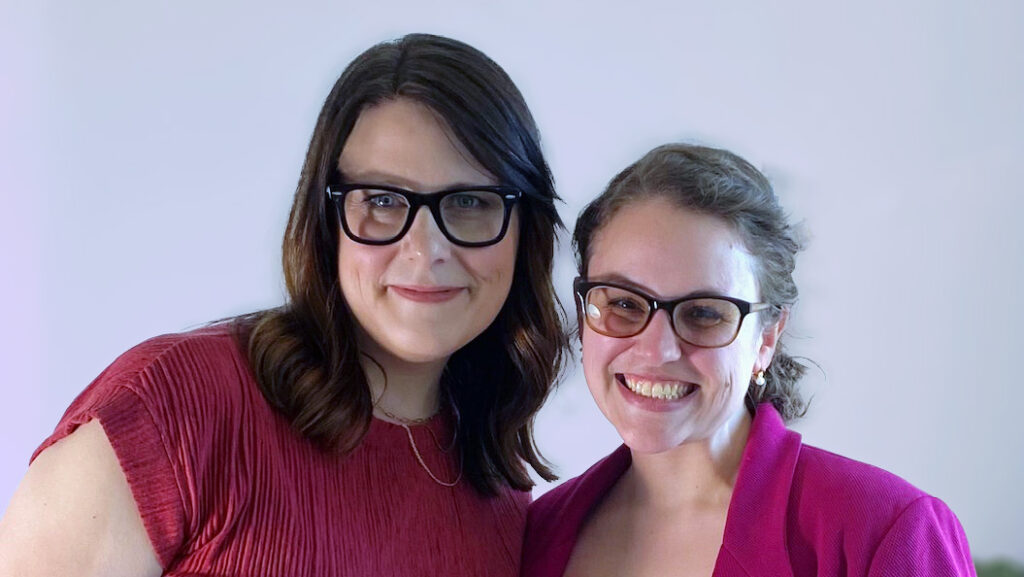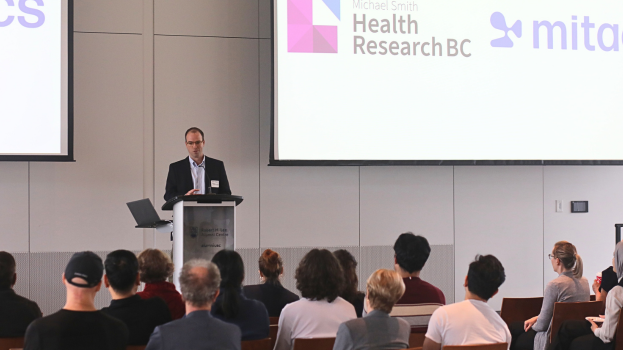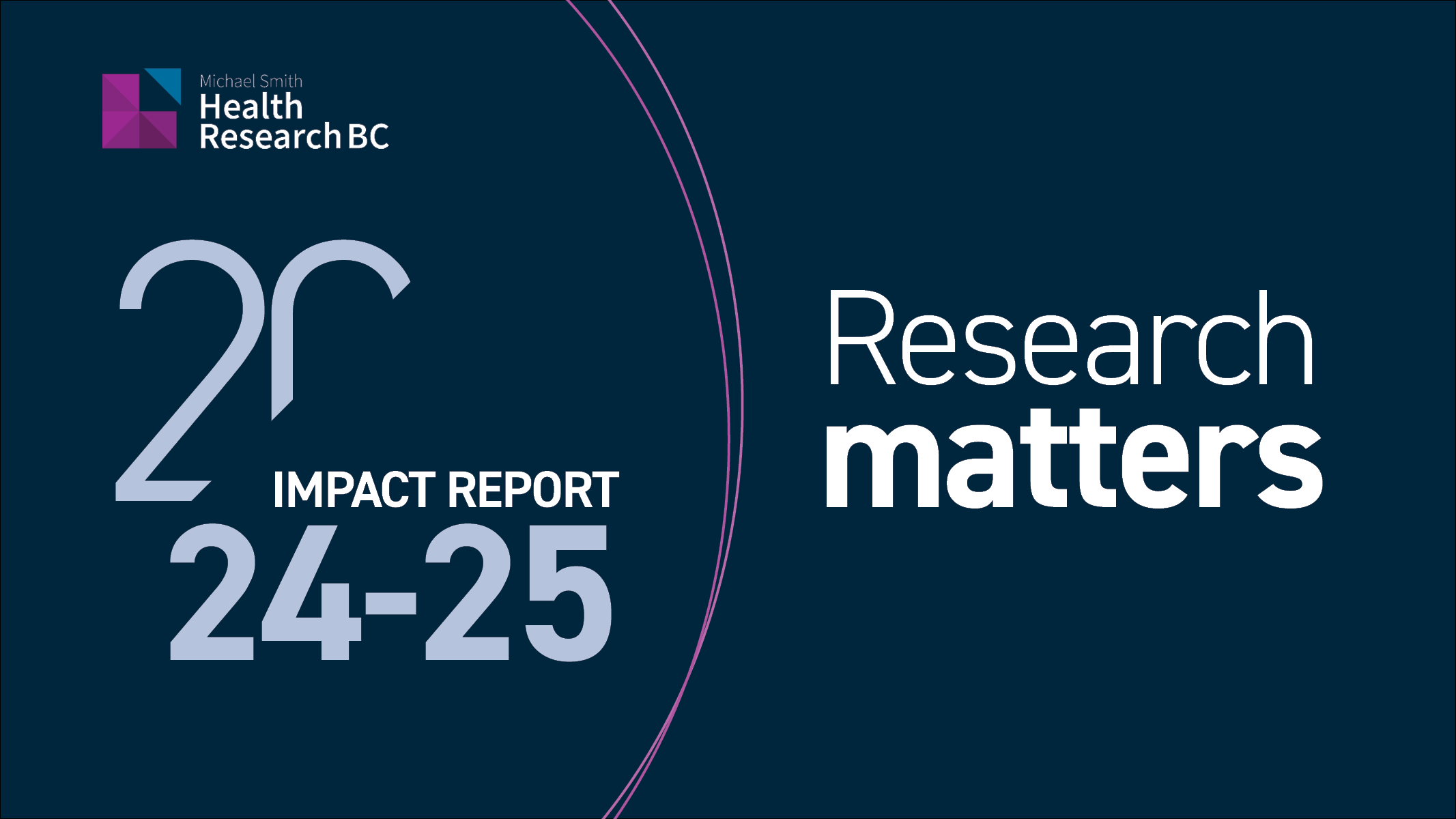Training supports meaningful patient engagement, collaboration in BC
24 July 2024

Photo: Dr. Larry Mróz from the BC SUPPORT Unit (left) and Dr. Paul Yong from the Women’s Health Research Institute (right).
“Ten years ago, when I was a researcher, there wasn’t as much focus on engaging patients as partners in health research,” says Dr. Larry Mróz, research and capacity development lead, BC SUPPORT Unit. “We didn’t get formal training in patient-oriented research or learn why it was important to engage people with lived experience. That’s a big part of what drives me to do this work.”
Health research teams benefit from engaging patients and people with lived experience. But many don’t know how to start.
Collaborating to support patient-oriented research
In 2017, Dr. Paul Yong wanted to set up a patient research advisory board for his lab at the Women’s Health Research Institute (WHRI). An endometriosis researcher, Paul aimed to set up the advisory board in a meaningful, sustainable way. He wanted people with lived experience to advise on research priorities and engage in specific projects.
To find the right partners, Heather Noga in Paul’s lab reached out to patients and patient-oriented research teams. As a research manager and staff member, she built relationships and provided dedicated support for patient partners throughout the advisory board’s creation.
Larry and the BC SUPPORT Unit offered guidance, support and training once the advisory board was set up. They provided resources and training to WHRI members and patient partners, to help people build confidence engaging patients as research partners.
“The patient research advisory board has been such a driving force in our patient-oriented research journey,” says Paul, assistant director of the WHRI. “The advisory board has shaped not only our lab, but also our research culture.”
Members of the patient research advisory board are people with lived experience of endometriosis. They guide the lab’s research priorities, co-lead on projects, inform important health outcomes in studies, and make study protocols and consent forms more patient-friendly.
Supporting the next generation

Photo: Patient partner Rachel Langer (left), who works closely with postdoctoral fellow Dr. Natasha Orr (right).
“I think it’s incredibly important for trainees to get involved in patient-oriented research,” says Dr. Natasha Orr, a postdoctoral fellow co-supervised by Paul. “Ultimately, we’re doing research to help people. By collaborating with patient partners, I can better understand what matters most to them, and how I can improve my own research to make it more meaningful, useful and relevant.”
When Natasha joined the Yong Lab as a graduate student, she encountered patient-oriented research for the first time. The patient research advisory board guided her endometriosis work throughout graduate school. She learned so much that she decided to work with patient partners in all her future research.
“As a patient, it’s hard to express how much it means to me when scientists like Natasha prioritize our perspectives,” said Rachel Langer, who is part of the patient research advisory board and works closely with Natasha. “When I realized that sharing my experience can affect change, it offered a sense of agency that’s rare to come across as a patient. I hope to see much more engagement with patients as we work toward better solutions for people with living endometriosis and chronic pelvic pain.”
Building relationships for meaningful engagement
“Relationships are key to patient-oriented research,” says Larry. “Meaningful engagement takes place when patient partners and researchers can work together as a team. This results in better research decisions that will centre patient experiences. That relationship-building skill is so important, but challenging to train.”
Unlike standard research protocols, patient-oriented research does not have well-defined steps, which can be challenging for research teams. Flexibility and communication are key. Success can look different depending on each patient partner, research team or relationship.
That’s why the BC SUPPORT Unit offers patient engagement training and services, to help teams and organizations build confidence in doing patient-oriented research.
“Research teams benefit from patient perspectives,” says Monica Mamut, unit director, BC SUPPORT Unit. “We’re grateful to collaborate with the WHRI to support patient engagement in health research, in a way that changes research to benefit everyone involved.”
Shared work with the WHRI includes consulting on patient-oriented research projects, highlighting patient-oriented research at the annual WHRI symposium, and hosting a workshop and training sessions on patient engagement.
This has helped advance institute-level support for patient-oriented research, like integrating patient engagement into the WHRI strategic plan, developing training for related staff, and co-developing guides that help with patient partner onboarding.
“Patient-oriented research has evolved so much since I was a trainee, and even in my time at the WHRI,” said Paul. “It’s been a pleasure to work alongside our patient partners and the BC SUPPORT Unit to foster that evolution.”
Paul has received awards from Health Research BC and the BC SUPPORT Unit for patient-centred work on endometriosis, including a 2020 Reach Award and a 2019 Pathway to Patient-Oriented Research (P2P) Award.
The BC SUPPORT Unit, part of Michael Smith Health Research BC (Health Research BC), is a provincial initiative that moves evidence developed with patients and communities into practice.
We help research teams engage with patients, families, caregivers, other people with lived experience and community members to improve health evidence. Our patient support and training services include:
- consultation on patient engagement in research
- support for patient-oriented research grant applications
- resources and training for patient-oriented research





